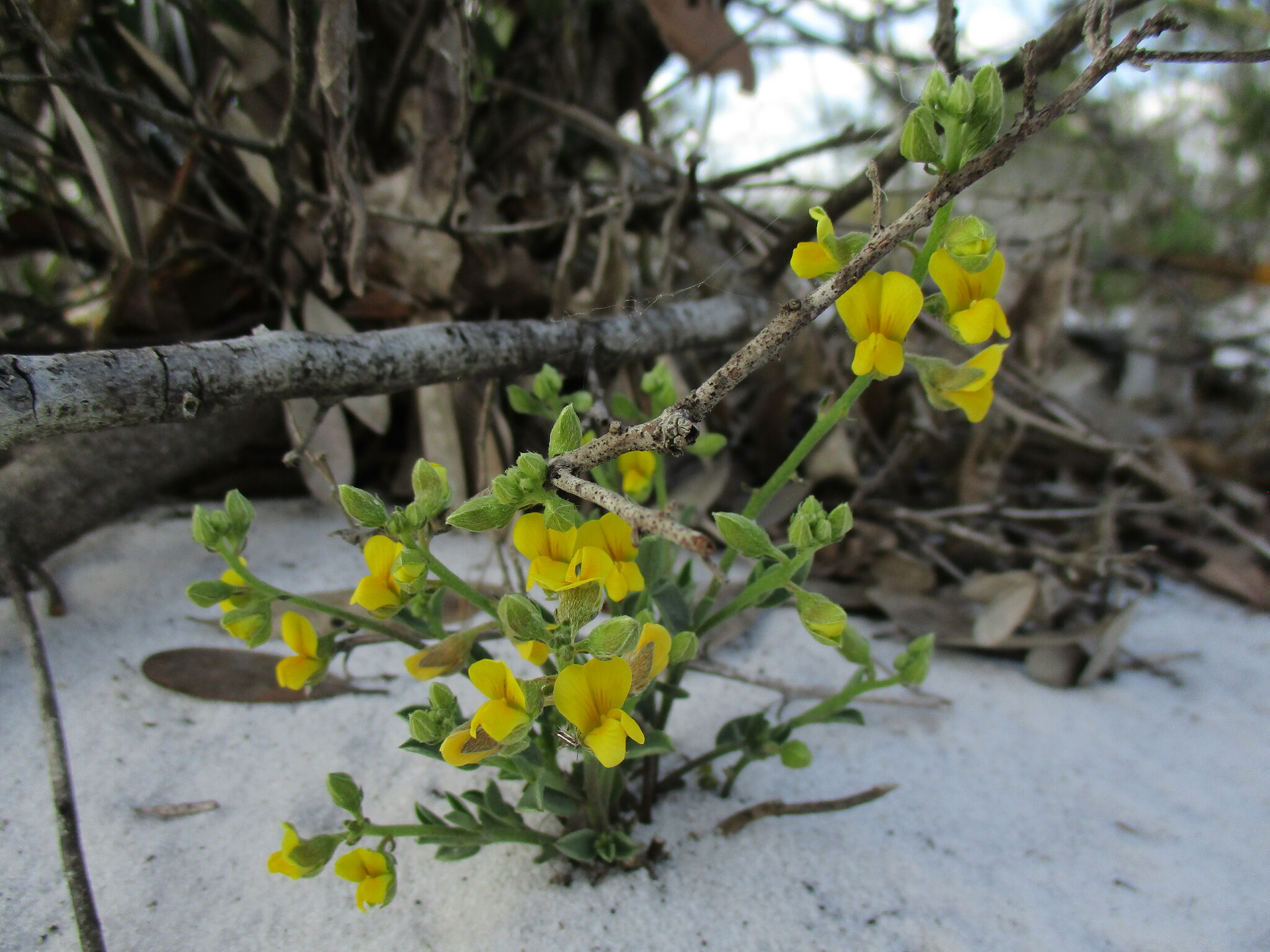National Collection Spotlight: Avon Park Rabbit-bells

Avon Park Rabbit-bells (Crotalaria avonensis) is a federally endangered species from the legume, pea, or bean family. This spreading, perennial herb is one of the most narrowly distributed of the Lake Wales Ridge, Florida endemics, known from only three sites. Lake Wales Ridge, Florida’s highest and oldest ridge, began forming millions of years ago. Once islands, these dunes represent some of Florida’s oldest habitats. Numerous species found on the Lake Wales Ridge exist nowhere else, highlighting the area’s unique and significant biological importance. Unfortunately, approximately 85% of the original, dry uplands habitat on the Lake Wales Ridge has been lost to agriculture and development.
Avon Park Rabbit-bells are found along trails, open edges, or in previously disturbed road beds. This bushy plant hugs the ground with clusters of fuzzy, grayish leaves and short stems bearing small yellow flowers from March until June. It occurs in full sun, on patches of bare white sand, or in association with Cladionia lichens and in partial shade of other plants.
This rare plant, a target species for the CPC-led Florida Plant Rescue, is stewarded by longtime CPC partners Bok Tower Gardens and Cincinnati Zoo & Botanical Garden. Cincinnati Zoo and Botanical Garden’s Center for Conservation and Research of Endangered Wildlife (CREW) was asked to develop an in vitro propagation and shoot tip cryopreservation protocol for this species. They have since cultured and cryopreserved over 120 genotypes representing all 3 populations and have contributed plants to a restoration project in collaboration with Bok Tower Garden and Archbold Biological Station. Several partners from CPC’s network recently published a study on a successful translocation of Avon Park Rabbit-bells with over a decade of demographic data. This species has also been a case study in numerous videos from CPC’s Rare Plant Academy, including: